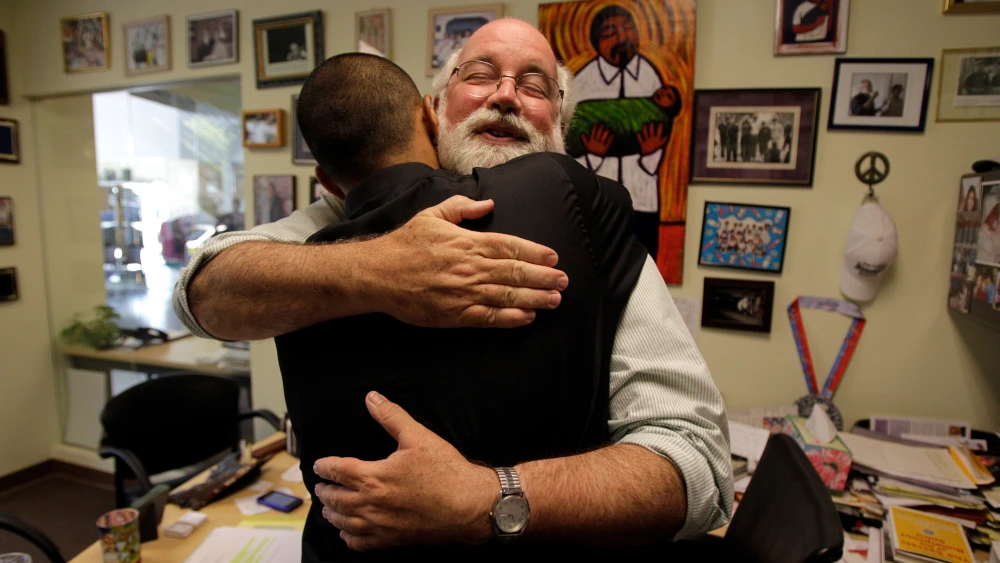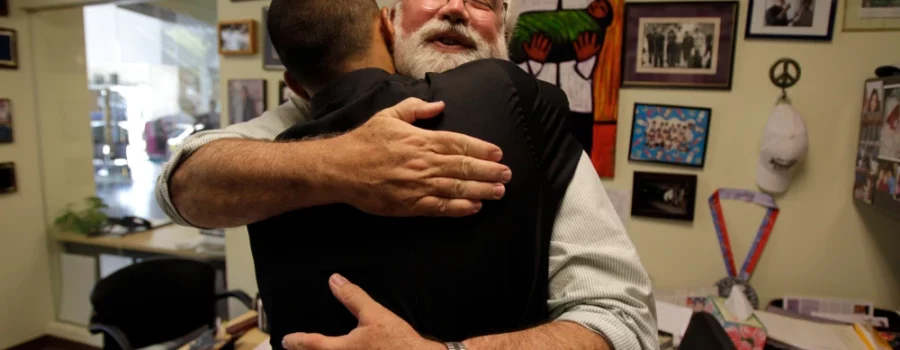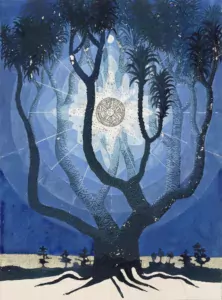 Whether you have, or not had, the opportunity to hear Fr. Greg Boyle speak, or the experience of reading Tattoos on the Heart or Barking to the Choir: The Power of Radical Kinship or The Whole Language: The Power of Extravagant Tenderness, be sure to join his conversation with Illuman men at our June Watering Hole.
Whether you have, or not had, the opportunity to hear Fr. Greg Boyle speak, or the experience of reading Tattoos on the Heart or Barking to the Choir: The Power of Radical Kinship or The Whole Language: The Power of Extravagant Tenderness, be sure to join his conversation with Illuman men at our June Watering Hole.
Thirty-five years ago, when Fr. Greg founded Homeboy Industries in Los Angeles, the city had the highest concentration of gang activity. Today, Homeboy Industries is the largest gang intervention, rehabilitation and re-entry program in the world, welcoming thousands of men and women each year. Fr. Greg knows transformation. He also knows boundless compassion. His name for all of this is radical kinship.
In addition to his many talks and books, the best way to introduce him is through his words and ideas:
We settle for the illusion of separation when we are endlessly asked to enter into kinship with all. How do we awaken from the dream of separateness?
At Homeboy we say that love is the answer, community is the context, and tenderness is the methodology.
It’s about going out to the margins, because that’s how the margins get erased. It’s about standing with the poor and the powerless and the voiceless. You stand with the easily despised and the readily left out. You stand with the demonized so the demonizing will stop, because demonizing is always untruth. You stand with the disposable so the day will come when we stop throwing people away. And you imagine something different; you dream of something different.
Joseph Campbell writes, if you want to change the world, change the metaphor. Kinship is the game changer. It is the Pearl of great price. It is the treasure buried in the field. Let’s go and sell everything to get it. Yet we think kinship is always beyond our reach
How can we find this mutuality of kinship that can stand in awe at what the poor have to carry rather than stand in judgment at how they carry it?
Richard Rohr tells us that we are programmed and wired for union. So, when we feel separated from the rest, we are on the wrong track. And living in what Albert Einstein called a kind of optical delusion, a prison, he says, and our task is to free ourselves from this prison.
How do we move from blame to understanding, which is a hallmark of the kinship of God? Entering the kinship of God requires humility. Humility asks of those on the margins, what do you need? How can I help you?
Kinship—not serving the other, but being one with the other. Jesus was not “a man for others”; he was one with them. There is a world of difference in that. . . .
Only kinship. Inching ourselves closer to creating a community of kinship such that God might recognize it. Soon we imagine, with God, this circle of compassion. Then we imagine no one standing outside of that circle, moving ourselves closer to the margins so that the margins themselves will be erased. We stand there with those whose dignity has been denied. We locate ourselves with the poor and the powerless and the voiceless. At the edges, we join the easily despised and the readily left out. We stand with the demonized so that the demonizing will stop. We situate ourselves right next to the disposable so that the day will come when we stop throwing people away.
The prophet Habakkuk [2:3] writes, “The vision still has its time, presses onto fulfillment and it will not disappoint . . . and if it delays, wait for it .”
It would seem that, quite possibly, the ultimate measure of health in any community might well reside in our ability to stand in awe at what folks have to carry rather than in judgment at how they carry it.
—Father Greg Boyle, founder of Homeboy Industries








Leave a Reply
Your email is safe with us.
You must be logged in to post a comment.